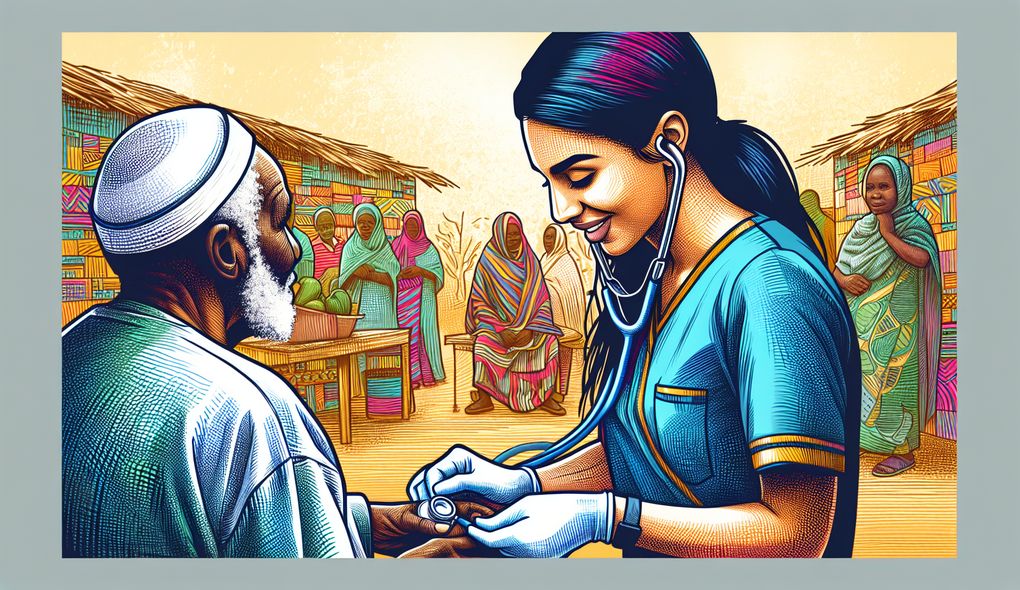How do you ensure cultural competency and sensitivity when providing healthcare services to diverse populations?
INTERMEDIATE LEVEL

Sample answer to the question:
When providing healthcare services to diverse populations, I ensure cultural competency and sensitivity by actively seeking knowledge about different cultures, customs, and beliefs. I make a conscious effort to listen and understand the unique needs and perspectives of each individual. Additionally, I regularly participate in cultural competency training programs to enhance my understanding and skills in providing culturally sensitive care. Lastly, I collaborate with interpreters and community leaders to ensure effective communication and to bridge any potential language or cultural barriers.
Here is a more solid answer:
As a healthcare provider, I prioritize cultural competency and sensitivity when working with diverse populations. To achieve this, I actively engage in ongoing professional development courses and workshops that focus on cultural awareness and sensitivity. I have completed trainings on topics such as cultural humility, unconscious bias, and effective communication with patients from diverse backgrounds. Additionally, I regularly seek feedback from patients and colleagues to ensure that I am providing culturally sensitive care. For instance, I recently had a patient from a different cultural background, and I took the time to learn about their cultural practices and preferences, which greatly contributed to the successful outcome of their treatment.
Why is this a more solid answer?
The solid answer builds upon the basic answer by providing specific examples of the candidate's professional development efforts, including attending trainings on cultural humility, unconscious bias, and effective communication. It also mentions seeking feedback from patients and colleagues as a way to improve cultural sensitivity. The answer demonstrates the candidate's ability to apply cultural knowledge in real-life situations, but it could still be improved by discussing collaboration with interpreters and community leaders.
An example of a exceptional answer:
Ensuring cultural competency and sensitivity is of utmost importance to me in delivering healthcare services to diverse populations. I cultivate cultural awareness by actively engaging with community organizations and attending cultural events to gain insights into different cultures. I have also developed collaborative relationships with interpreters and community leaders, which facilitate effective communication and understanding. In addition, I have conducted cultural sensitivity training sessions for fellow healthcare professionals to promote a culture of inclusivity within the workplace. Recently, I had the opportunity to work with a patient who had limited English proficiency. By coordinating closely with an interpreter, I was able to provide personalized care that respected the patient's unique cultural traditions and beliefs. This experience reinforced the significance of collaboration and effective communication in ensuring culturally sensitive care.
Why is this an exceptional answer?
The exceptional answer surpasses the solid answer by discussing the candidate's proactive efforts to engage with community organizations and attend cultural events, which further enhances their cultural awareness. It also highlights their leadership skills by conducting cultural sensitivity training sessions for fellow healthcare professionals. The example of working with a patient who had limited English proficiency showcases the candidate's ability to navigate language and cultural barriers through collaboration with an interpreter. The answer demonstrates a high level of cultural competency and sensitivity in healthcare provision.
How to prepare for this question:
- Attend cultural competency training programs and workshops to enhance your understanding and skills.
- Engage with community organizations and attend cultural events to gain insights into different cultures.
- Seek feedback from patients and colleagues to improve your cultural sensitivity.
- Develop collaborative relationships with interpreters and community leaders to facilitate effective communication and understanding.
What are interviewers evaluating with this question?
- Cultural competency and sensitivity
- Communication
- Collaboration
- Professional development

